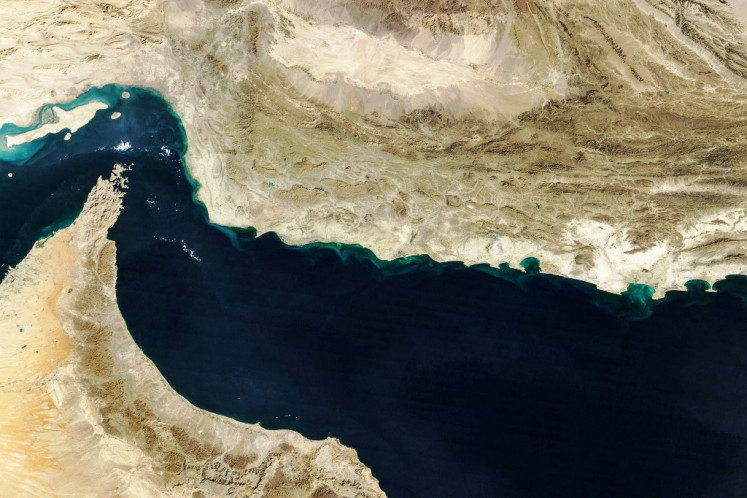Popular Reads
Top Results
Can't find what you're looking for?
View all search resultsPopular Reads
Top Results
Can't find what you're looking for?
View all search resultsRecovering stolen assets
The first — and perhaps the biggest — challenge for the government is for the mutual legal assistance agreement (MLA) to be ratified by the House of Representatives, which is perceived as one of the most corrupt institutions in the country.
Change text size
Gift Premium Articles
to Anyone
I
ndonesia, perceived to be one of the most corrupt countries in the world, and Switzerland, previously known for having one of the strongest banking secrecy policies and as a safe haven for ill-gotten gains, signed early this week a mutual legal assistance agreement (MLA) on tracing and recovering stolen assets.
Yet more significant for Indonesia, which was ruled for more than 30 years by a corrupt authoritarian government until 1998, is that the agreement is retroactive. This means that the MLA could also apply to corruption, money laundering, tax evasion and illegal monetary gains committed over the last four decades.
The government deserves high commendation for concluding the MLA, given the strong commitment of the Swiss government to protecting the secrecy and integrity of its financial services industry in maintaining its status as one of the world’s largest financial centers.
The MLA — which simplifies and accelerates procedures for tracing stolen assets, particularly by reducing formal requirements — is truly a strategic partnership between a developed country and a developing country. And while developing countries need to improve governance and accountability to curb corruption, developed nations should stop providing a safe haven for stolen proceeds.
The MLA will imbue the government with the authority to pursue unlawful money gained primarily through corruption, money laundering, tax evasion and other financial crimes. This does not, however, mean that the government can immediately ask Swiss authorities for information on the financial assets of Indonesian citizens at Swiss financial institutions.
The first — and perhaps the biggest — challenge for the government is for the MLA to be ratified by the House of Representatives, which is perceived as one of the most corrupt institutions in the country.
Given the presidential and legislative elections in April, we don’t believe that the House members, 80 percent of who are seeking reelection, will have the time to deliberate the MLA before its new lawmakers are installed in October.
The second challenge is that only corruption, money laundering and tax evasion cases that have been tried and handed final and binding court rulings are eligible under the MLA.
Since such cases involve very complex transactions that may require more than two years to prosecute from the district court up to the Supreme Court, Indonesia may need technical assistance from the Stolen Asset Recovery Initiative (StAR) to build the institutional capacity of its legal institutions.
StAR is a program that the World Bank and United Nations Office on Drugs and Crime launched in 2007 to help developing countries recover assets stolen by corrupt leaders and officials.
Despite the challenges, the MLA is nevertheless a big boost in the drive against corruption and a deterrent to those intending to hide their criminal gains in Switzerland.










